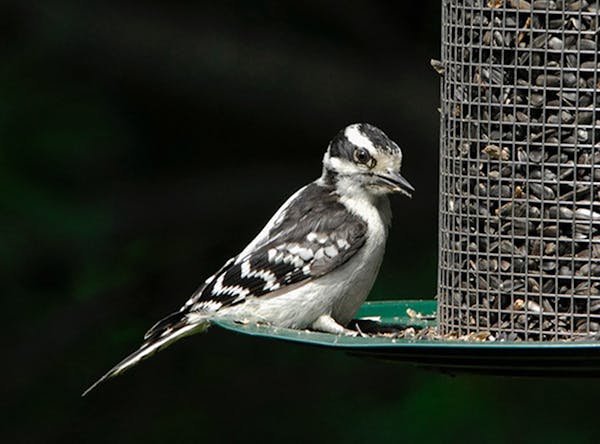Surprise!
You find a baby robin beneath the tree in your front yard.
Uh-oh, orphan.
You get a box, some soft rags or a towel, change jeans and carefully deliver the poor baby to the Wildlife Rehab Center in Roseville.
After a routine health check, a rehab staff member tells you the robin is just fine. Now, you are told, take it home and put it right back where you found it. Chances are that Mom Robin is looking for her youngster.
This applies as well to baby bunnies looking lost and alone in the leaf clutter of your garden.
Young birds, nestbound, get antsy, eager to act grown up. They climb out of the nest, standing on adjacent branches to stretch and look around. They bump into each other. They fall to the ground.
The adult birds know this; the youngster is cheeping to make sure of that. The baby will be fed until it can forage for itself. The fall most often does not injure the bird. The drive to wildlife repair is not always necessary.
Tami Vogel, communications director at the Wildlife Rehabilitation Center of Minnesota in Roseville, explains:
"A few years ago I started working with the vets here at the rehab center to develop what we call our health check program.
"Every single 'orphan' that comes in, if it's not showing signs of physical injury gets an immediate exam by the vets.
"There are other things we check immediately, evidence of cat attack, the circumstances of where it was found, and so on," said Vogel.
"We will not admit a healthy animal that should grow up in the wild with its family," said Vogel. "If the patient is hydrated, has good body condition and is healthy, we send it back to where it was found."
"It's taken a lot of education on our part to reassure clients that the animal should return to their yard, but we've made huge strides," she said.
"People who rescue baby birds should take standard precautions," Vogel advises.
"Wear gloves, wash your hands afterward. People can get salmonella and other things from birds, too, so being aware of personal hygiene anytime someone handles wildlife is good practice."
Orphaned nestlings can be brought to the center from 9 a.m. to 6 p.m. any day of the week, she said.
Alert, hopping fledglings should be left alone and observed. If you're not sure whether or not the species should be on the ground, you can send a photo to the rehab center for identification (e-mail: info@wrcmn.org) or call (651-486-9453 or 651-486-9410) to seek advice. The staff will help you.
Any obviously injured fledglings can come straight in — no need to call first, Vogel said. The address is 2530 N. Dale St., Roseville.
Vogel described the look of "dawning disbelief as people realize that no, we're not admitting those baby birds. They're going right back to your yard."
The birds will be cared for by their mother, who knows what she is doing.
"Last year I think we did nearly 900 reunites. For as busy as we are that's a huge number of healthy patients kept out of the hospital, and returned to their family," Vogel said.
The rehab center is a busy place with animals in real need of special care. In the past 10 years the center has treated 138,384 patients — birds, mammals, amphibians and reptiles, Vogel told me.
The center has a full-time professional veterinary staff, but relies on volunteers in many ways. It is funded with donations.
General information can be found at info@wrcmn.org.
Lifelong birder Jim Williams can be reached at woodduck38@gmail.com.

The 5 best things our food writers ate this week

A Minnesota field guide to snow shovels: Which one's best?

Summer Camp Guide: Find your best ones here

Lowertown St. Paul losing another restaurant as Dark Horse announces closing

